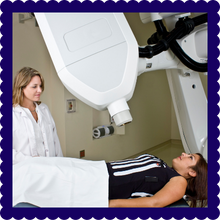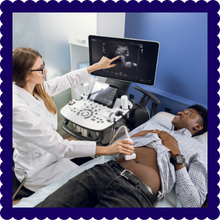Health care is among the most exciting paths, with a 13% expected growth rate and over 1.9 million openings. But with all the available positions in the medical trade field, you may feel overwhelmed and unsure of which path to choose.
We’ve compiled a list of the highest-paying medical jobs for 2023 based on the data provided by the Bureau of Labor Statistics to help you navigate your healthcare career path.

Advantages and Disadvantages of Healthcare Careers
One of the most significant sectors globally is healthcare. You have plenty of reasons to choose a career in health care, including earning potential, career advancement possibilities, and work stability.
You can decide whether a career in health care is the best fit for you by understanding the potential advantages and disadvantages.
Advantages of Working in Health Care
Earning Potential
Obtaining a profession in the medical field can be very lucrative. The more credentials and specialization you have, the higher the pay will be. While not all positions in the field pay above the national average salary of all jobs, most of them do. The size of a healthcare institution, the city and state where you work, and the kind of license or certification you possess will all impact your earning potential.
Career Advancement
The methods for gaining both earning potential and job advancement are comparable. As mentioned, medical professionals can increase their earning potential by earning additional licenses or credentials.
For example, RN to BSN licensed nurses can obtain a master’s degree in nursing and advance to clinical, educational, and managerial nursing positions in areas like pharmacology, health administration, health services, and education. Additionally, you can pursue a Ph.D. to obtain a tenure track in prestigious universities. You can also use your master’s degree to follow an advanced practice registered nurse (APRN) specialty like nurse practitioner, clinical nurse specialist, nurse anesthetist, or nurse midwife.
There are no restrictions in the medical industry, and most healthcare occupations allow for acquiring extra certifications.
Job Security
Because people’s well-being is at stake in healthcare positions, it’s only sensible for professionals to undergo extensive training, study, and adherence to state-mandated certification and licensing procedures. Job prospects can be based on the sort of medical profession since the medical industry is career-focused, and the amount of your job obligations depends on your level of education, training, or qualifications. For instance, there is a high need for dental assistants since they have the abilities needed to keep a dental practice running smoothly.
Career Flexibility
If you work for a sizable business or a medical facility, you can move your career to different offices within the same organization. Also, you aren’t constrained to a specific region for work chances if you earn a nationally recognized license or certification. For instance, Diagnostic Registered Medical Sonographers can take travel assignments of varying lengths and work across state lines. A profession in medicine can be an excellent choice if you don’t currently have any duties to care for your family.
Job Outlook
As mentioned, the healthcare industry’s job outlook and projected available openings are promising. This indicates that the healthcare sector is solid, with strong demand and room for expansion, because it is predicted to grow at a rate that is more than twice as fast as the national average.
Disadvantages of Working in Health Care
You Have A Non-Traditional Schedule
As a future medical practitioner, you know that accidents or illnesses can happen anytime. All medical facilities, big or small, need 24/7 medical personnel on standby, even on holidays!
When working in hospitals, there are no such things as “holidays.” All workers are expected to be ready to work on holidays, even on days off. They’re often required to work ten- to twelve-hour shifts, making balancing social life, work, and personal obligations often impossible.
Unless you work in medical administration, where your schedule flexibility may vary, you might want to think twice about a medical future if you love working a 9–5 job and having weekends off. If you decide to work in the medical industry, you can have split days off, on-call shifts, and weekend work.
You Have to Deal with Patient Mortality
The idea that patients might not recover is frightening when your job is to care for people and help them get better. The unfortunate fact is that occasionally patients’ injuries or illnesses are too severe to be saved, despite your best efforts. At some healthcare facilities, patient mortality is more common and expected and does occur frequently.
If you want to work in hospitals, especially if you aspire to work in oncology, geriatrics, or emergency departments, it’s essential to give this element of medicine careful thought.
Patients are strangers at first. But as time passes, you’ll likely get attached to them. When you have formed bonds with patients, it can be challenging to hear bad news, like a patient passing away.
So, having a strong mind and heart is very important when entering the medical field. You should be prepared for anything that could happen — good or bad. It would be helpful to learn coping mechanisms for patient loss and to maintain professionalism at all times, but occasionally our feelings can overpower even the most experienced medical professional.
You May Feel Burnout
Hospitals are never at the loss of patients. Individuals frequently visit medical facilities to receive treatment and consult with doctors about their current or upcoming care plans. The demand for medical staff is rising whether you work for a home health service, long-term care institution, or urgent care center.
Healthcare professionals can experience task overload due to the number of patients they may need to manage throughout a shift. For instance, a nurse might be responsible for multiple patients simultaneously, ensuring they are given their meds on schedule, have any requests met, and follow prescribed treatment programs.
Staffing restrictions can also have an impact on a single night’s workload. The facility must pick up the slack if one employee clocks out for the evening, resulting in a more significant workload. Healthcare workers may experience burnout and sleep deprivation due to the additional task they may need to take on.
You’re More Exposed to Diseases
Exposure to known and unknown diseases is one of the top things medical health professionals worry about. They have a higher chance of contracting diseases.
Medical professionals are continuously in contact with germs, and there is no way to thoroughly sanitize oneself and prevent germs from attacking. You might get sick frequently, which would increase the tension already indicated!
How to Choose the Right Health Care Career
It’s surprising how the internet and the media influence people’s decisions. Medical careers are gaining more popularity not only because more people are finding out that it offers promising career prospects but also because of how TV series portray the life of medical professionals. Two of the most-watched TV shows include “Grey’s Anatomy” and “The Good Doctor.”
But don’t be fooled; what is shown on TV does not 100% reflect what happens in the real world.
You should consider a few things before entering a specific medical profession, regardless of why and how you became interested. You want to be sure that you select the best medical career. Choosing the wrong one might cause you a lifetime of misery and regret.
Consider your motives
Healthcare is one of the most demanding careers — as you have read in the disadvantages section. From considerable training to weighty responsibilities, you must carefully consider your motivation.
If you’re up for a medical career because — based on the TV series you’ve watched — it’s exhilarating and you love the adrenaline rush it gives you, then you should highly rethink your decisions. What you see on TV, such as the love triangle and heroic scenes, rarely happens in real life.
Helping others should be the most significant part of your motivation because you will be assisting people in improving their health. But other elements may still influence your decision regarding a career.
For instance, if you want to work in the medical field and earn more money but don’t want to see blood or hear patients scream, you can work as a radiation therapist. If biology and chemistry are your strong suits, you could work in a pharmaceutical lab to create or enhance treatment options.
The medical industry provides many possibilities if you’re seeking a job with much room for progress.
Where do you want to work?
The healthcare profession covers a broad scope, and professionals can work in various settings. This inquiry is related to your motivation. It’s best to target a workplace that you’re most passionate about.
If you’re good with kids, you can become a pediatric physician. If you want to work in a setting that doesn’t limit you to specific demographics to help people, you can work at a general clinic or hospital. Consider working in a lab if you’re an introvert and want to avoid dealing with people.
It’s also critical to consider what you don’t want from your medical career. For example, working in a hospice may not be the best fit if you have strong emotional needs. Similarly, if you’re sensitive, stay away from ER jobs.
Consider your skills and the lifestyle you want
Different job descriptions will require other skills. Some specialties call for longer hours. However, you can still find medical careers that let you balance your professional and personal lives.
Before having a financial decision, research the profession you’re eye-balling and know their working hours and specific demands.
But just a piece of advice; do not work in a medical field where the stakes are higher, like oncology, emergency medicine, or neurology, if you want to have a well-balanced life. To have a more balanced social and work life, consider less-demanding fields, such as ophthalmology, dentistry, veterinary, etc.
Think about how much time you want to invest
The best thing about choosing a medical career is the variety of job choices, regardless if you only have a high school diploma, associate degree, or medical degree. Also, the healthcare industry is an excellent choice if you’re searching for a position with much room for growth. It continuously changes due to new technology, enhanced processes, emerging therapies, and even new ailments.
You should look into the more than 200 healthcare careers available today and the education requirements for each. Some medical jobs may require only six months of training and certification, while others can take up to 15 years of studying! So you must consider the time, effort, and money you are willing to invest.
20 Highest Paying Medical Jobs
Physicians and Surgeons

Education:
Bachelor’s degree; Medical Doctor (MD) or a Doctor of Osteopathic Medicine (DO); and Training for a Specialty Interest
Average Annual Salary:
Depending on the specialty, Physician and Surgeons can earn $198,420 up to $353,970
Expected Job Growth:
Doctors and surgeons identify and treat illnesses or injuries. In addition to conducting physical examinations and medical history inquiries, doctors also order, carry out, and interpret diagnostic tests. On the other hand, surgeons are medical professionals who focus on diagnosing and treating illnesses that may call for surgical procedures or other physical alterations to the human body. Surgery can be used to identify a condition or treat an injury.
Dentists
Education:
- Bachelor’s degree
- Doctor of Dental Surgery (DDS)
- Doctor of Medicine in Dentistry
- Doctor of Dental Medicine (DMD)
Average Annual Salary:
Expected Job Growth:
Dentists are responsible for helping people take care of their teeth and gums by offering a variety of services. Dentists get rid of decay, fix broken teeth, fill cavities, straighten teeth, apply sealants, polish patients’ teeth, and give oral hygiene advice. Dentists diagnose and treat patients from mouth, teeth, and gum diseases; they must also study X-rays and search for any signs of cavities, gum disease, or jaw difficulties.
These medical professionals, however, are often mistaken for orthodontists. Orthodontists are a subset of dentists who focus on tooth and jaw alignment and are also specialists in oral health.
Podiatrists

Education:
Bachelor’s degree and a Doctor of Podiatric Medicine (DPM)
Average Annual Salary:
Expected Job Growth:
Podiatrists are medical experts capable of identifying and addressing issues with feet and ankles. Podiatrists help reduce discomfort, resolve deformities, prevent foot diseases, and maintain mobility.
Podiatrists can treat the symptoms of any underlying medical diseases, such as diabetes and arthritis, which can frequently impact your foot health, in conjunction with other medical specialists, such as your general practitioner.
Pharmacists
Education:
Bachelor’s degree in biology, healthcare and related, or a physical science field; a Doctor of Pharmacy (PharmD); and earn a certification for advanced knowledge of a specific field.
Average Annual Salary:
Expected Job Growth:
The safe and efficient use of pharmaceuticals is the primary emphasis of pharmacists or dispensing chemists. They are qualified to advise patients on over-the-counter treatments for mild diseases and to distribute prescription medications. In addition to offering treatments like smoking cessation, blood pressure monitoring, and cholesterol management, this also entails describing adverse effects and how certain drugs interact.
Optometrists

Education:
Bachelor’s degree in a premedical field; Optometry Admission Test (OAT); Doctor of Optometry (OD); and an optional board certification by the American Board of Optometry
Average Annual Salary:
Expected Job Growth:
An optometrist is a physician who specializes in providing general eye care. Optometrists examine the eyes to identify vision issues and recommend corrective lenses. Following college, optometrists complete a four-year professional program to earn a Doctor of Optometry degree. After receiving their optometry degree, they might pursue further clinical training or a specialty fellowship.
Nurse Anesthetists, Nurse Midwives, and Nurse Practitioners
Education:
Bachelor’s degree in nursing; master’s degree in an advanced practice nursing field; Registered Nursing (RN) license; and pass a national certification exam; and
Average Annual Salary:
$123,780
Expected Job Growth:
40% from 2021 to 2031
Known as advanced practice registered nurses (APRNs) or licensed practical nurses (LPNs), nurse anesthetists, nurse midwives, and nurse practitioners work in various healthcare facilities to provide primary and specialty healthcare to patients.
Nurse anesthetists administer anesthesia and provide related care before and after surgical, obstetrical, diagnostic, or therapeutic procedures. Nurse midwives are assigned to care for women during pregnancy, labor, and postpartum. Nurse practitioners focus on illness prevention, maintaining a healthy lifestyle, and being aware of your health concerns while offering patient-centered treatment.
Physician Assistants

Education:
Bachelor’s degree in healthcare or a related field; experience in patient care; pass the Physician Assistant National Certifying Examination (PANCE); and an optional additional certification in specialty areas by the NCCPA.
Average Annual Salary:
Expected Job Growth:
A physician assistant is a healthcare provider who has received the training and authorization necessary to provide medical services under a doctor’s or surgeon’s direction. Although not doctors or physicians, they have many of the same duties in their job description.
Work areas include psychiatry, emergency medicine, and medicine (including primary care and family medicine). Many physician assistants work in medical offices, hospitals, or outpatient clinics.
Veterinarians
Education:
Bachelor’s degree in biology and related fields; Doctor of Veterinary Medicine (DVM or VMD); and pass the North American Veterinary Licensing Examination;
Average Annual Salary:
Expected Job Growth:
Veterinarians work to maintain the health of many species of animals. While some vets focus on smaller animals like pets, others might be specialists that focus on livestock or exotic species, such as zoo animals. Some veterinarians also contribute to preserving public health by ensuring that food animals are cared for and in good health.
Examining animals, identifying any issues, and treating any health concerns are the primary duties of veterinarians. Also, they must teach animal/pet owners how to care for their pets. These specialists occasionally need to be ready to put animals to death.
Physical Therapists

Education:
Bachelor’s degree in recreation and fitness or healthcare and related fields; Doctor of Physical Therapy (DPT); pass the National Physical Therapy Examination; and an optional specialization residency to become a board-certified specialist.
Average Annual Salary:
Expected Job Growth:
Physical therapists help patients with illnesses or injuries regain function, enhance mobility, reduce pain, and prevent or limit physical limitations that may last a lifetime. PTs review their patient’s medical histories and assess their capacity for independence and successful reintegration into society or the workplace following an illness or injury. They create treatment plans that outline a therapy technique, its goal, and the desired result.
Occupational Therapists
Education:
Bachelor’s degree in healthcare; master’s degree in occupational therapy; pass the e National Board for Certification in Occupational Therapy exam; and earn optional board and specialty certifications
Average Annual Salary:
Expected Job Growth:
Occupational therapists assist people of all ages who are hurt, ill, or disabled and want to overcome emotional, cognitive, developmental, or physical obstacles. OTs combine physical, mental, and psychological drills to assist patients in doing daily tasks with ease. OTs help people do basic chores like getting dressed and washing up, eating, walking, and driving.
An OT often has an occupational therapy assistant that will assist them in helping their patients heal.
Radiation Therapists

Education:
Bachelor’s degree in radiation therapy or healthcare-related fields; pass an exam or earn a certificate from the American Registry of Radiologic Technologists; earn a basic life support or BLS and cardiopulmonary resuscitation or CPR certification.
Average Annual Salary:
Expected Job Growth:
A radiation therapist administers high doses of ionizing radiation to specific parts of the patient’s body to treat disease, particularly cancer.
RTs, administer radiation treatments that the doctor has prescribed, devised in collaboration with the radiation physicist, and offer the support required to reduce the emotional suffering cancer patients go through during therapy.
Genetic Counselors
Education:
- Bachelor’s degree in a science-related field
- Master’s degree in genetic counseling
- Certification for genetic counselors
Average Annual Salary:
Expected Job Growth:
A genetic counselor uses an evaluation of a person’s family history to provide advice on hereditary diseases that may impact them or their relatives. Following an evaluation to determine whether genetic testing is necessary, genetic counselors are also responsible for educating patients about the many inherited disorders, the treatments available, and any ethical issues.
Speech-Language Pathologists

Education:
Bachelor’s degree in healthcare-related fields; master’s degree in speech-language pathology; and earn the Certificate of Clinical Competence in Speech-Language Pathology
Average Annual Salary:
Expected Job Growth:
Speech-language pathologists assist patients with a wide range of physical and mental communication impairments, including difficulties with swallowing, articulation, stuttering, word finding, semantics, syntax, and phonics. SLPs frequently work as rehabilitation team members, which may also include psychologists, occupational therapists, audiologists, and physical therapists.
Audiologists
Education:
Bachelor’s degree in any field; Doctor of Audiology (AuD); and earn optional certificates or certification from the American Speech-Language-Hearing Association and the American Board of Audiology
Average Annual Salary:
Expected Job Growth:
Although some audiologists may specialize in working with a particular population, such as children or the elderly, all audiologists seek to identify and treat hearing and balance difficulties and abnormalities in patients of all ages. These healthcare professionals can also assist patients in managing their treatment plans for various chronic illnesses. Hearing loss, tinnitus (continuous ringing in the ears), dizziness, and balance concerns are typical ailments audiologists treat.
Audiologists may also be entrusted with assisting patients in creating proactive, preventive plans that can lessen the risk of injury from noise.
Nuclear Medicine Technologists

Education:
- Associate’s degree or bachelor’s degree in Nuclear Medicine Technology
- Optional: American Registry of Radiologic Technologists and Nuclear Medicine Technology Certification Board certification
Average Annual Salary:
Expected Job Growth:
Nuclear medicine technologists are professionals assigned to carry out medical research and diagnosis. They produce and administer modest doses of radioactive medications (also known as radiopharmaceuticals) to patients, after which they take photographs of the radioactive material inside their bodies using advanced imaging technology. Nuclear medicine technologists also provide radiation doses to patients internally to treat medical disorders.
Dental Hygienists
Education:
- Associate’s or bachelor’s degree in Dental Hygiene
- Cardiopulmonary Resuscitation (CPR) certification
Average Annual Salary:
Expected Job Growth:
A dental hygienist is a professional in caring for teeth and gums; their work is primarily preventative. They assess the oral health of the patients with an emphasis on identifying and treating any gum disorders. They can also remove plaque and tartar. To promote good oral health and prevent dental problems like tooth decay and maintain a healthy lifestyle, dental hygienists can also advise patients on how to eat well.
Registered Nurses

Education:
- Associate’s or bachelor’s degree in Nursing
- Diploma from an approved nursing program
Average Annual Salary:
Expected Job Growth:
Registered nurses interact directly with patients, doctors, and other healthcare professionals. Some of their duties include but are not limited to helping plan, execute, coordinate, and evaluate patient care with the help of multidisciplinary health team members after consulting with patients and their families. They also track, evaluate, respond to, record, and communicate patient symptoms and condition changes.
Orthotists and Prosthetists
Education:
Bachelor’s degree in any field; master’s degree in orthotics and prosthetics; and certification for orthotics and prosthetists
Average Annual Salary:
Expected Job Growth:
Orthotics and prosthetics are healthcare professionals providing prosthetics and orthopedic braces to help people with injuries, congenital disabilities, diseases, and orthopedic impairments recover or cope. Orthotics and prosthetics professionals thoroughly evaluate the patient’s functional state, including muscle growth, gait, sensory function, range of motion, joint stability, and skin integrity, to ascertain the patient’s O&P needs.
Diagnostic Medical Sonographers, Cardiovascular Technologists, and Technicians

Education:
High school diploma with classes in anatomy, physics, physiology, and math or associate’s and bachelor’s degree in sonography and cardiovascular technology; and professional certifications
Average Annual Salary:
Expected Job Growth:
Due to their shared industry and profession, cardiovascular technologists and diagnostic medical sonographers have a lot in common. Both use high-frequency sound wave-emitting medical imaging technology to evaluate their patients’ soft tissues, organs, and blood flow.
The cardiovascular medical sonographer is uniquely qualified to assess the heart and artery/vein systems. Diagnostic medical sonographers, on the other hand, solely perform non-invasive procedures.
Chiropractors
Education:
Bachelor’s degrees in healthcare-related fields and majors focusing on physical movement; Doctor of Chiropractic (DC); and pass the National Board of Chiropractic Examiners
Average Annual Salary:
Expected Job Growth:
Chiropractors specialize in diagnosing and treating neuromuscular diseases, with particular emphasis on the manipulation and/or manual adjusting of the spine. Most chiropractors work to enhance their patients’ functionality, decrease their pain, and teach them how to take responsibility for their health through exercise, ergonomics, and other back pain treatment methods.
How To Survive Medical School
The highest-paid medical jobs require applicants to attend medical school. If you want to land one of the highest-paid medical jobs, you should be prepared for what lies ahead on your journey to becoming a doctor.
On average, between 81.6 and 84.3% of four-year medical program students graduate, while the graduation rate for six-year medical programs was about 95.9%.
Becoming a doctor is very demanding! Nonetheless, some students make it more difficult than it needs to be. Be one of those students who don’t. Here are some pro tips on surviving and thriving in medical school.
Reduce or eliminate financial stress
It’s no secret that the cost of education, especially for medical school, continues to rise. Most students worry about how they’ll pay the tuition and afford living costs. You are not alone!
According to Educational Data, 73% of medical school graduates have educational debt.
Eliminating financial stress will help you focus more on your academic objectives during your medical school journey and less on your bank account. When it comes to financing, the truth is that there are always choices available, so don’t be scared to look.
There are lots of ways to get assistance. You can obtain student loans, check government grants, and find scholarships. Regardless of how hopeless you may feel right now, remember that there are possibilities for the course you’re interested in enrolling in.
Be open to changing your study habits
You may think that your study habits will be just as effective when you start medical school because you’re excelling in your undergraduate studies. You are probably mistaken.
Many medical students have discovered that their previous study habits are no longer working. This is mainly because graduate schools have more schoolwork than undergraduate programs. You need to get ready to abandon your go-to study techniques and start experimenting with fresh ideas.
You must perfect your study habits in your first year of medical school.
Set your priorities straight
As soon as you start medical school, you must let go of some of your interests, hobbies, and pastimes. We’re not saying that you are not entitled to have a life outside the classroom; we’re saying that you need to cut down the time from your non-academic activities. For example, you can run on weekends instead of running every day. Are you concerned about maintaining friendships? Make a call or two a month a priority to catch up.
However, as you progress through the program, you must get more realistic. You must accept that becoming a doctor often means losing your identity outside of medicine.
During your free time, it’s best if you use it for networking and making connections. These components are essential to the medical school experience. Doing so will help you get connected to new job prospects and receive guidance from more seasoned medical professionals. Also, it can be a crucial source of support during the trying days of medical school.
Stop comparing yourself to your peers
It’s imperative to stop comparing your peer’s achievements to yours. Take a step back and consider the unique qualities that helped you get into medical school and will benefit you and your patients going forward.
Instead of comparing yourself to others, take a step back and consider your growth. Because in the big picture, it matters more how far you’ve come compared to where you started than how far you’ve come compared to your peers.
Ask for help
The best advice anyone can give you in medical school is always to be bold and ask for help, especially when needed.
Stoicism and medicine frequently go hand in hand, which is understandable since perseverance is essential during medical studies. However, maintaining a stiff upper lip at the price of your education or well-being won’t make you a better doctor.
If you feel you can no longer hold it in, seek help. Do not wait for the situation to become dire, such as being unable to complete a rotation or failing a class. Medical schools often provide free peer tutoring and academic assistance centers — use them!
Also, academic deans and student health centers can assist you in overcoming any impediments to your study caused by your physical or mental health. Even though it is sometimes stigmatized, remember that seeking assistance as soon as a problem emerges will likely have fewer long-term effects than waiting.
Frequently Asked Questions
Is health care a “recession-proof” industry?
Regardless of the myth that health care is a recession-proof industry, it is not. In fact, no employment is immune to economic downturns. However, health care does provide a level of job security that most other sectors do not.
What types of skills are health employers looking for?
Employers are not only looking at your educational background, but they’ll also evaluate you based on your passion for helping others. On top of credentials, licenses, and degrees, you would be more competitive if you showed empathy, compassion, intellectual curiosity, and effective communication. These skills go a long way in providing the best medical care.
Can I enter the health industry after high school and return to college later?
Regardless of what others say, you can apply for healthcare jobs after high school and return to college later. Many healthcare professionals began their careers in entry-level positions requiring a high school diploma and additional certifications.
How can I know if becoming a doctor/surgeon is for me?
You’ll know if becoming a doctor or surgeon is for you if you’re ready to stay in school for a long time, have test results that make medical school possible, and desire a job that allows you to serve people while being generously compensated.
What is the fastest-growing healthcare career?
Nurse Anesthetists, Nurse Midwives, as well as Nurse Practitioners, are the fastest-growing healthcare career. The BLS projects that between 2021 and 2031, employment in these fields will grow by 40%.
Final Thoughts
Highest-paying medical jobs are available in various specialties, from internal medicine to dental care to animal care. Much better pay can be obtained by working in well-funded hospitals and big cities, or in some situations, by opening your own practice.
Although these medical careers help you generate more money, it’s crucial to remember that they also need significant effort and dedication. Most high-paying medical jobs need extensive study and training and require you to be abreast of new developments in the field.
Also, see: The 50 Highest-Paying Trade Career Jobs

